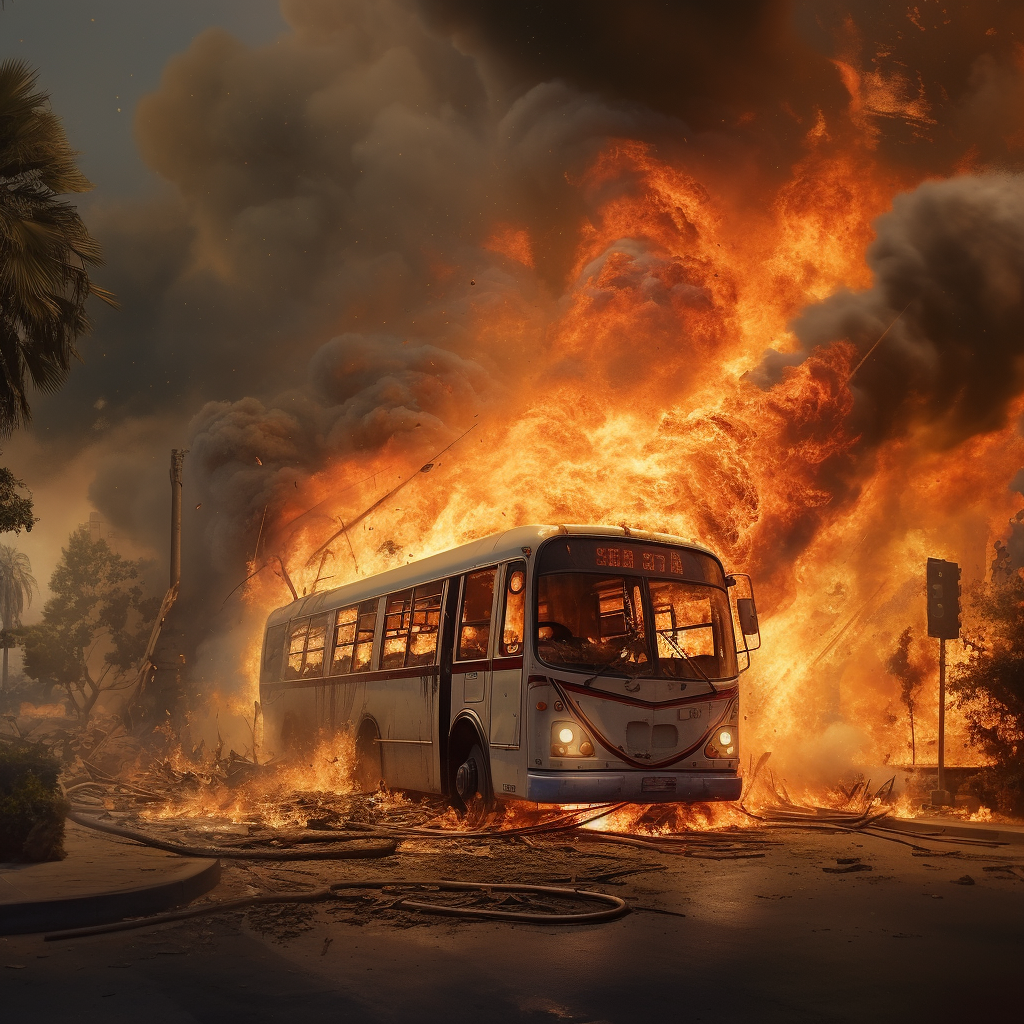
I was just a kid from a small town in southern New Jersey. My uncle was a Rabbi in Pittsburgh. Before his retirement, he and I took a 30-day trip to the holy land, Israel, with members of his congregation.
At the time, I had a full ride to Rutgers University: half academic, half baseball.
We were in Israel for three days. I was sitting at an outdoor cafe drinking a cup of tea in Haifa, northern Israel. Across the street was a bus stop where people gathered for the bus. As soon as the bus pulled up, a man, a Palestinian suicide bomber, grabbed a three-to-four-year-old girl out of her mother’s arms and ran onto the bus. I got up to go after him, took 2 steps, and the bus blew up.
I was hit by a piece of the bus, spit out two teeth, and had an injury to my left eye.
There were two soldiers nearby who grabbed me and asked me to come and help. When a tragedy like that happens over there, they don’t wait for ambulances.
There was a hospital two blocks away, so we just picked the victims up and ran them to the nearest hospital. They put a person on each of my shoulders and said “follow us!”
They were also carrying two people each. I made four trips with soldiers, carrying two victims each time.
No one on the bus survived. I looked for and asked about the little girl, but no one had found her. The bus was full of body parts, and she was among them, but nothing was recognizable.
Every day of my life, I still see that little girl’s face in my head; her name was Aviel.
The two soldiers walked back to the hospital with me, insisting I get checked out; they stayed with me the whole time. It was June 30, 1983.
The next day, July 1, 1983, was my 18th birthday. I signed up with the IDF (Israeli Defense Force). Nothing else mattered.
During my basic training, the marine barracks in Beirut, Lebanon, was struck by a Hezbollah suicide bomber, killing almost 300 Marines on September 28, 1983.
A fellow cadet in my platoon from New York City told me that everyone in his family when they turn 18, joins the IDF for the mandatory 2 years of service. He, myself, and three other Americans already serving with the IDF asked to help our fellow Americans in Beirut.
When we arrived in Beirut, we were given Marine uniforms and helped them dig out for two weeks.
At the time, Israel was at war with Lebanon, Syria, and Hezbollah. After six months of basic training, we went right to the front.
To say I was highly motivated was an understatement. I carried the “saw” in the platoon, a Negev; 7.62 NATO. It was semi-auto with the 3, 20-round magazines. I also carried 10, nine-meter belts on my shoulders and around my neck that could be made into full auto in a few seconds.
I was the designated door opener. My sidearm was an Uzi that I wore strapped to my chest. That Uzi saved my life in 1987; it took a few AK-47 rounds. It was destroyed, but I was ok.
I was recon and the artillery signal caller. I could do that job in my sleep. My father served in the U.S. Army and did the same. His father, “Pop,” served in WW2. Pop joined because he wanted to find members of our family still living in Europe, but was unable to find any.
During the U.S. Gulf War, when Iraq was shooting Scud missiles, I was volunteered by my colonel to help destroy the mobile missile launchers. I was sent to Iraq and joined a squad of U.S. Army Rangers. When the missile launchers saw an American plane in the sky, they knew there was a bomb on the way, so they launched and ran.
During U.S. Operation Chaparral, we set out in two Humvees. The base would find the launchers on the satellite and give us the coordinates. My job was to find them. Once we did, we would dismount and sneak up on them on foot.
We would continuously fire at the bottom third of the missile where the fuel was, and the missile and launcher would explode along with the warhead, so we had to stay about 100 meters away when we opened fire. There were two together a few times, so we would get both.
We destroyed 21 missile launchers in total.
I served ten years and four months. My unit was in Gaza on July 1, so I stayed until my mother’s birthday in November. On November 1, 1993, I was discharged as Lance Corporal First Class—if you were American and weren’t going to stay in, that’s the highest rank you can achieve.
I went to Amsterdam just to relax, I spent two nights sleeping under the tree Anne Frank wrote about in her diary. Without letting anyone know on November 24, I got home on my mother’s birthday.
Over those 10 years, I had been home only a few times. My mother asked if I was done and wasn’t going back.
“No, I’m done,” I replied. She took my passport, and I’ve never seen it since.
Two days later was Thanksgiving, and I had a lot to be thankful for; I was home.
I’m not a U.S. military veteran. I get no U.S. veteran benefits. The only thing I am permitted to do is salute the flag, which I do proudly!
Written By Jeffrey Weinstein